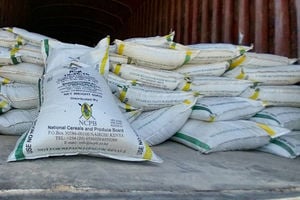Safe environment will curb sexual assaults

Believing and validating survivors’ experiences is a fundamental step towards healing and justice.
What you need to know:
- Sexual assault encompasses behaviours of non-consensual sexual acts, rape, molestation, harassment and coercion to sex.
- Fostering a culture of consent—such as promoting open and honest communication about boundaries, desires and intentions in sexual encounters—is important.
April is Sexual Assault Awareness Month (SAAM). Sexual assault, which is prevalent in the country, is an act of violence that not only inflicts physical harm but also leaves deep emotional scars, shattering lives and undermining trust.
Sexual assault encompasses behaviours of non-consensual sexual acts, rape, molestation, harassment and coercion to sex. Consent is the cornerstone of a healthy sexual interaction; else, it is an infringement on an individual’s autonomy and rights.
Fostering a culture of consent—such as promoting open and honest communication about boundaries, desires and intentions in sexual encounters—is important in combating sexual assault. It must be freely given.
Consent is not a one-time agreement but ongoing dialogue that can be withdrawn at any point. Many cases of assault are towards people in relationships, mostly women, especially where one party feels superior.
One should communicate on using protection after consenting and making your partner realise that you have a say in the relationship and a right to protect yourself. Many women have been killed just because they refused to give in to sexual advances.
Prevention of sexual assaults will go a long way in ensuring a safe environment for everyone but helping victims is equally important. Survivors often face immense challenges in coming forward due to fear of judgement, retribution or disbelief.
Let’s create safe and supportive spaces where they can seek help. Believing and validating survivors’ experiences is a fundamental step towards healing and justice.
We must confront issues of gender inequality, toxic masculinity and institutional failures in responding to reports of sexual assault that make the perpetrators thrive and not face justice. Sadly, most cases are not taken seriously, especially if the victim and the assailant had a relationship.
Let’s teach the youth, more so men, to seek consent and accept a ‘No’. Defilement of minors is something we should not even discuss; the Constitution is very clear about the matter.
- Miss Nthiana is a sexual and reproductive health advocate at NAYA Kenya. [email protected].





